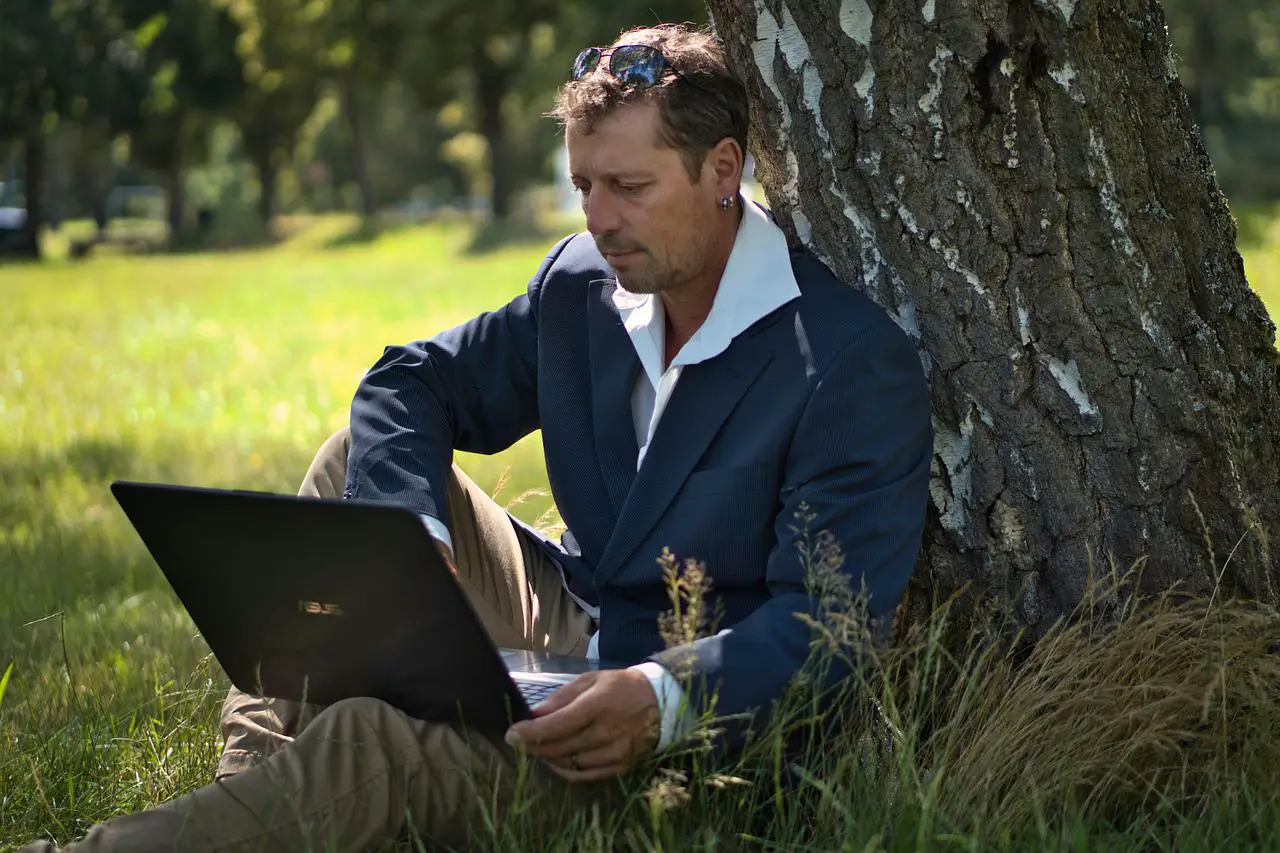
Imagine an entire year where you never need to be physically present in an office or even the same country. It’s a year where you have ample time to travel and see the world instead of just dreaming about it. Sound too good to be true? It’s not; it’s simply the magic of remote working.
While the COVID crisis forced people to work from home, digital nomads have been working from their favorite travel destinations since high-speed internet allowed them to. You too can work full-time from anywhere in the world, if you have an internet connection and the self-discipline that lets you stay focused on your job.
What is a Digital Nomad Lifestyle?
Digital nomads or location independent workers are people who have chosen a work environment that allows them to work anywhere with an internet connection. The digital nomad lifestyle is anchored on the principle that the world is interconnected today, and you can be productive from wherever you are. It unchains the workplace from a static office.
Map Out Co-Working Spaces at Your Destinations
One key factor contributing to successful remote working is a good working environment. You can save time by collaborating with other freelancers or employees and sharing workspace costs when you have a local co-working space.
Find co-working spaces at your destinations in advance to plan when and where you’ll meet with others. A great co-working space should have:
1. Comfortable and functional workstation
2. High-Speed Internet
3. 24/7 Accessibility
4. Great Ambiance
5. Great Community
Commit to a Routine for Productivity
Remote working doesn’t translate to lazy working. Having a routine can help you work more efficiently and be more productive. If you’re just starting out, try waking up early and setting aside time for exercise or meditation before diving into your workday.
Create a timetable that lets you fulfill your work tasks and leaves enough time to explore and enjoy the destination. Remember, your work is sponsoring your lifestyle, so give it a priority.
Delegate When Necessary
Are you spending too much time on repetitive tasks? Things like data entry can be mind-numbing and take up time you would have spent enjoying your new destination. Delegate these simple tasks to good freelancers. They’ll handle them for a fraction of what you are charging, and you’ll get back hours every week that you can spend exploring.
Link Up With Locals Pros in Your Industry
Networking opens opportunities. You can meet people who can help you find a job, connect you with companies looking for freelancers, or introduce you to other professionals who might be able to help you land your next gig.
The best part is that networking doesn’t have to take a lot of time—it just requires that you reach out and connect with people who are already doing what you want to do. Start by reaching out to the locals in your co-working space. Log in to LinkedIn and see where it takes you!
Set Boundaries With the Boss and Clients
You must accommodate the boss and clients despite the time difference. But you should also let them know it’s like any formal work setting; there are off-hours. You could choose to match their business hours and avoid potential conflicts. But if you have a flexible boss or client, work out hours that overlap and are convenient for both sides.
Be communicative. It’s easy to get distracted and lose track of time when traveling, so keep your boss and clients updated on your whereabouts. Don’t just disappear for days or weeks without keeping them informed—it will reflect poorly on you and could even put your job in jeopardy if they need something urgently that you haven’t responded to.
Seek Tips From Experienced Digital Nomads
If you’re just starting out on your digital nomad journey, it can be helpful to seek advice from people who have been doing it for a while. The digital nomad community is vibrant and fast-growing; ask your peers for tips, resources, and suggestions about how they managed their first few months on the road.
They will let you know the cheapest places for remote working, safe and dangerous places, money-saving tips on the road, and other information you can only get from someone who’s been there and done that.
Sign Up For Long-term Travelers’ Insurance
If you’re an avid traveler, it’s good to make sure your long-term travelers’ insurance policy covers you while abroad. While you don’t want an accident or illness on vacation to ruin your trip, it’s better to be safe than sorry.
The last thing you need is a high-priced hospital bill in a foreign country with no one to turn to. Also, note that some destinations may not have medical facilities as good as at home. Your travel insurance could come in handy if you need a speedy evacuation.
Pay Attention to Security Matters
Your safety and security should be a priority when planning your digital nomadism. It starts when picking on places to go. The government regularly issues security briefs about different countries and cities worldwide. Read them before making a decision.
Once at your destination, follow security advice from your embassy. Consult your new local buddies on their city’s do’s and don’ts at the co-working space.
Stay at least one month
Staying put for at least one month gives you enough time to get a sense of stability in your remote work routine at a new destination. Remember, your body also takes time to adjust to new sleep-wake cycles. It also minimizes the distractions that come from travel.
One month is also adequate to explore a new destination if you have at least 2 hours every day. Once you’ve found your sweet spot, stay for two months: After one month, it’s time to decide whether you want to extend your stay for another two months. If yes, it’s time to find an apartment and get everything ready for a longer-term visit.
Smile at your newly found digital nomad lifestyle!





